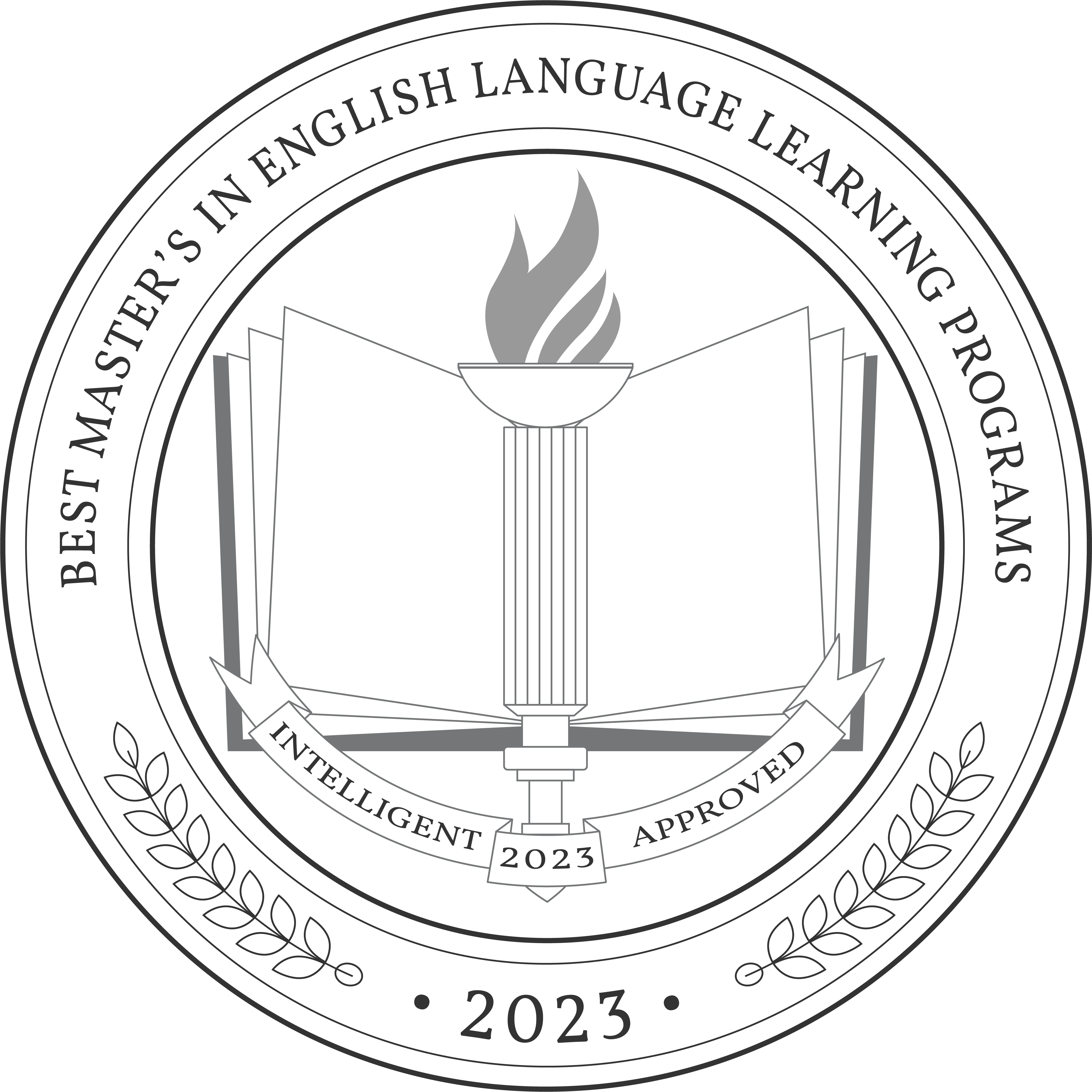Why This Matters
-
5 MILLION STUDENTS ARE ENGLISH-LANGUAGE LEARNERS
In 2017, 10.1% of the U.S.’s public school students were English language learners. That’s about 5 million students who need help learning the language.
-
EARN OVER $55,000 ANNUALLY
ESL teachers earn an average salary of $55,350 per year, which is over $10,000 more than the average for all occupations.
-
WORK IN MANY SETTINGS WORLDWIDE
A degree in teaching English opens up many job opportunities worldwide. Work in a local literacy program, a U.S. public school, an ESL program overseas, or in one of many other positions.
Our Research
We reviewed many master’s in English-language learning degrees, including Master of Arts (MA), Master of Science (MS), Master of Education (MEd), and Master of Arts in Teaching (MAT) programs. While these have different foci, they can all lead to a career teaching English to non-native speakers. The list also includes online, on-campus, and hybrid options.
To ensure the quality of every program, we only considered regionally accredited schools. Many schools also are nationally accredited through the Council for the Accreditation of Educator Preparation (CAEP).
We evaluated each program on the basis of flexibility, faculty, course strength, cost, and reputation. Then we calculated the Intelligent Score for each program on a scale from 0 to 100. For a more extensive explanation, check out Our Ranking Methodology.
- 58 hours to write this article
- 177 universities and colleges we assessed
- 334 education programs we compared
The Top 50 Master’s in English Language Learning Degree Programs

Discover More Options
What You Should Know About This Degree
Teaching English to non-native speakers in U.S. public schools doesn’t require an English to Speakers of Other Languages (ESOL) certification, but the certification can be added to many state-issued teacher’s licenses. Earning a master’s in English-language learning is one way to obtain this certification and become a licensed teacher. If you’re already a licensed teacher, however, there may be shorter certification programs available.
Working in this field also doesn’t require fluency in another language, but speaking something other than English can be helpful. Some targeted degree programs require students to know Spanish, Chinese, or Arabic upon enrolling.
The coursework for online degrees can usually be completed remotely, but programs might have an in-person component. Check both for brief on-campus requirements and longer practicum requirements as you research programs, and make sure any such requirement is compatible with your schedule and budget.
Many English language learners (ELLs) who graduate from high school have become fluent in English, and these graduates are taking some ESOL teaching positions. If you pursue this career field, be prepared to work part-time or in multiple settings because of the changing demographic of teachers. If you’re a former ELL who’s now fluent, a master’s degree could make you very attractive to employers.
What’s Next?
Consider these questions as you research and evaluate master’s in English-language learning programs:
- Am I eligible for this program? If you have a bachelor’s degree, you can likely enroll in a master’s in English-language learning program. Certain programs may also require you to have a teaching license or know another language, though. These programs tend to be more narrowly focused than those that don’t have additional requirements.
- What licensing or certification is required? Teaching English to non-native speakers doesn’t require a license or certification, but they can be helpful. You may want to pursue Teaching English to Speakers of Other Languages (TESOL) certification, Teaching English as a Foreign Language (TEFL) certification, or a similar certification to set yourself apart from others in the field.
When you’ve shortlisted programs of interest, research each one’s application requirements. You can get the details on the required application materials and deadlines by visiting a program’s website or contacting the program directly.
Also make sure you have a way to pay tuition. Discuss scholarship and financial aid opportunities with programs, and check whether your employer provides tuition reimbursement if you’re working.